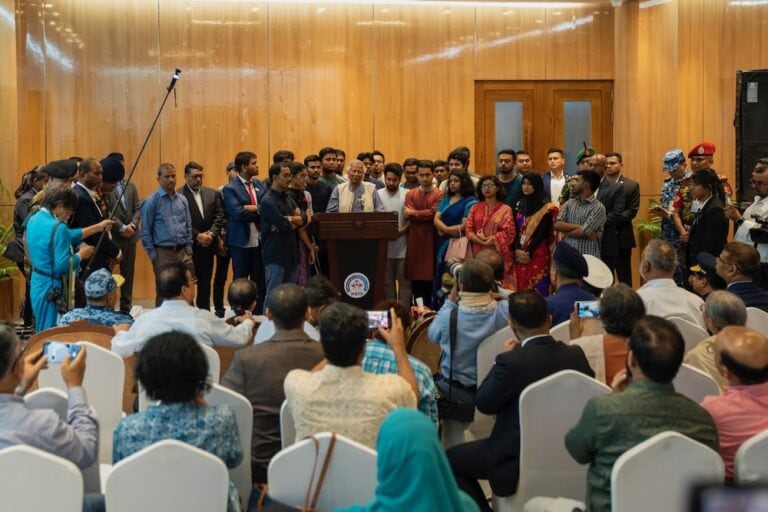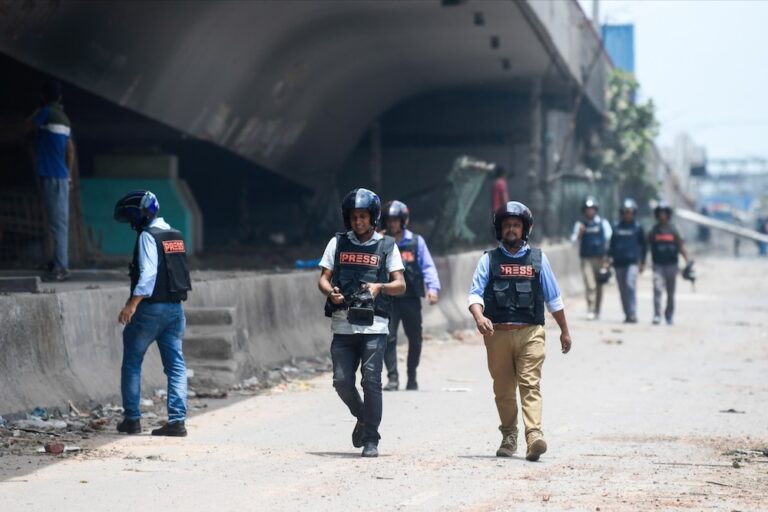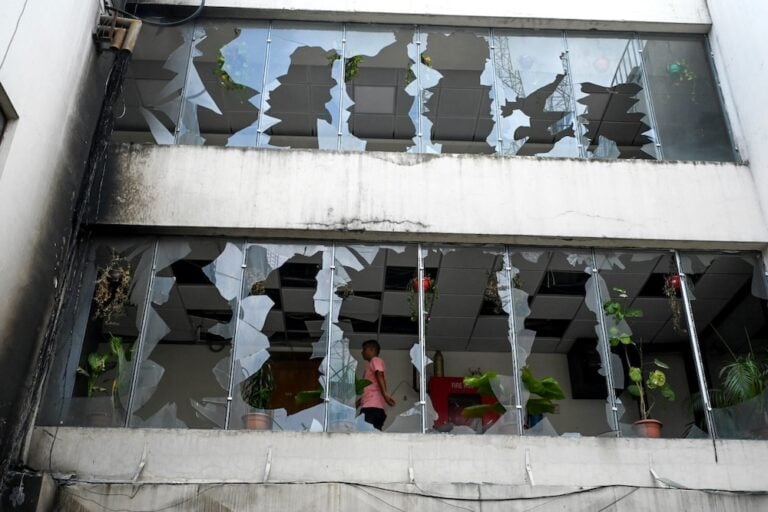(Media Watch/IFEX) – A newspaper has reported that Bangladeshi journalists working in the southern part of the country have received death threats from an underground armed political extremist group. According to the report, the group distributed a leaflet accusing journalists of working in collusion with the government and police. The leaflet blamed “a group of […]
(Media Watch/IFEX) – A newspaper has reported that Bangladeshi journalists
working in the southern part of the country have received death threats from
an underground armed political extremist group.
According to the report, the group distributed a leaflet accusing
journalists of working in collusion with the government and police. The
leaflet blamed “a group of journalists” for acting on behalf of the
government by suggesting “class struggle” was part of terrorism. This
leaflet claimed journalists were the agents of imperialist powers,
supporters of the bourgeois class and of the police now controlling the
area. The leaflet clearly stated that among the journalists, there were some
who opposed class struggle. The leaflet suggested it was the group’s
fundamental right to kill those who did not support the class struggle, in
this case, the journalists in question.
This leaflet was distributed in several districts of southern Bangladesh.
Copies were sent to the local press clubs of Jessore, Sathkhira, Jhenaidah,
Kaligonj. Further to these threats, journalists and their families in the
region have become worried for their security.
Background Information
Several underground left wing pro-Maoist armed groups have been active in
the southern districts of Bangladesh (i.e. Jessore, Khulna, Kushtia,
Meherpur, Jhenaidah, Sathkhira, Barguna, Patuakhali, Barguna, and some parts
of the Barisal division) for the last two decades. In 1971, when Bangladesh
fought against Pakistan for independence, one left wing group called the
Bangladesher Communist party (Marxist-Leninist) opposed the war. They
considered the struggle as “the fight of two dogs under the imperialist
axis.” In their view, independence would not bring any welfare to the common
people. Only socialism as designed by Mao-Ze-Dong could protect their basic
interests. After Bangladesh was liberated in 1971, this group went
underground and fought their cause from hiding. After their leader, Abdul
Haq, died, this group divided into several other groups. Fighting against
each other and the police, kidnappings and getting ransoms became their
common feature. Normally their activities are of interest to journalists.
Recently, police started combing operations against these armed groups.
Recommended Action
Send appeals to authorities:
families in the southern region of Bangladesh
Appeals To
Honourable Sheikh Hasina
Prime Minister of the Bangladesh
Fax: +880 2 813244 / 811015 / 813243Rafiqul Islam Biruttam
Minister for Home Affairs
Fax: +880 2 869667 / 864788
Please copy appeals to the source if possible.


